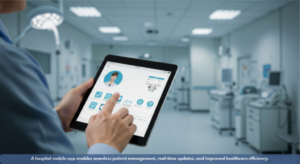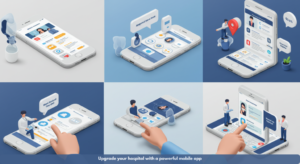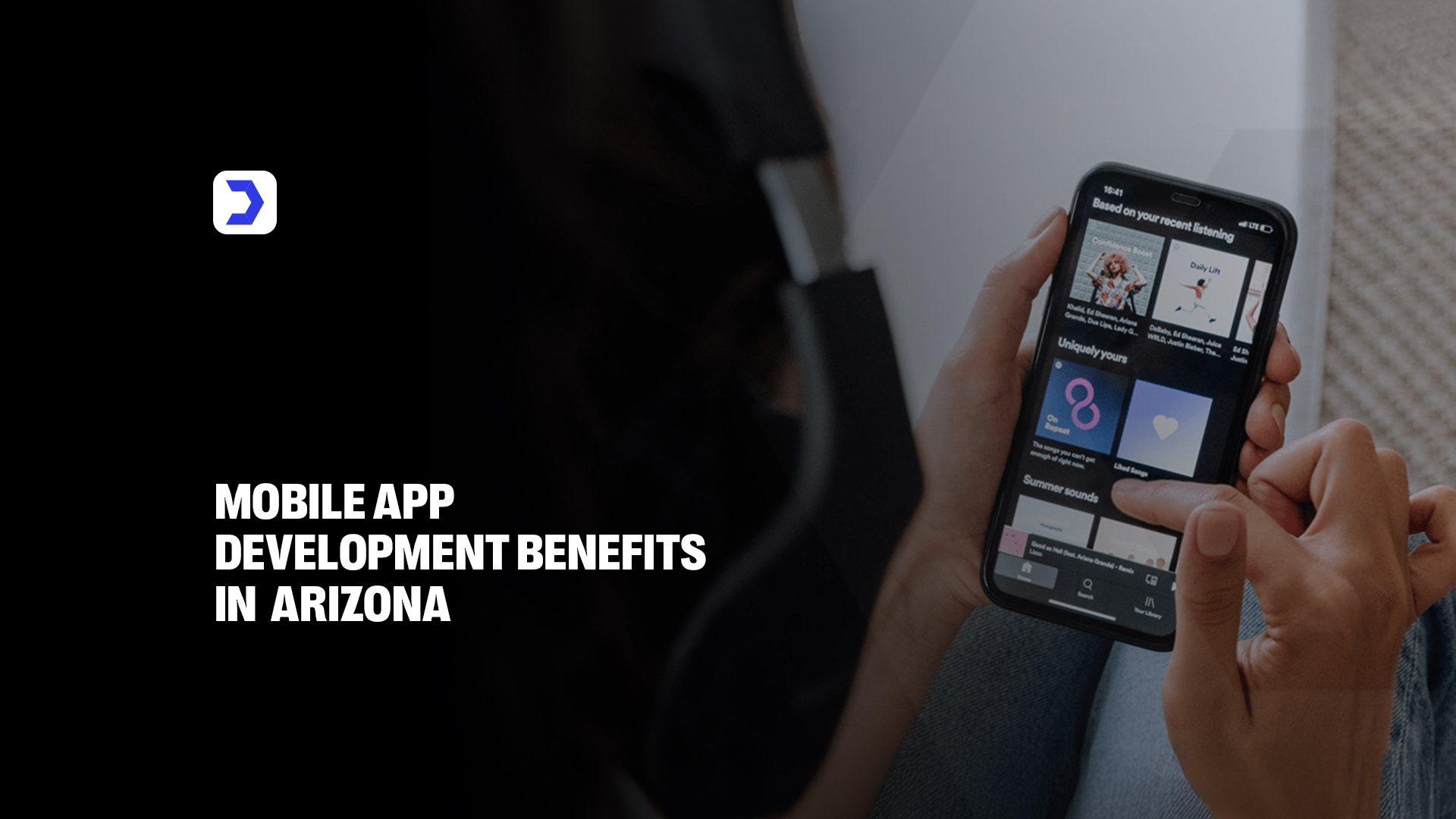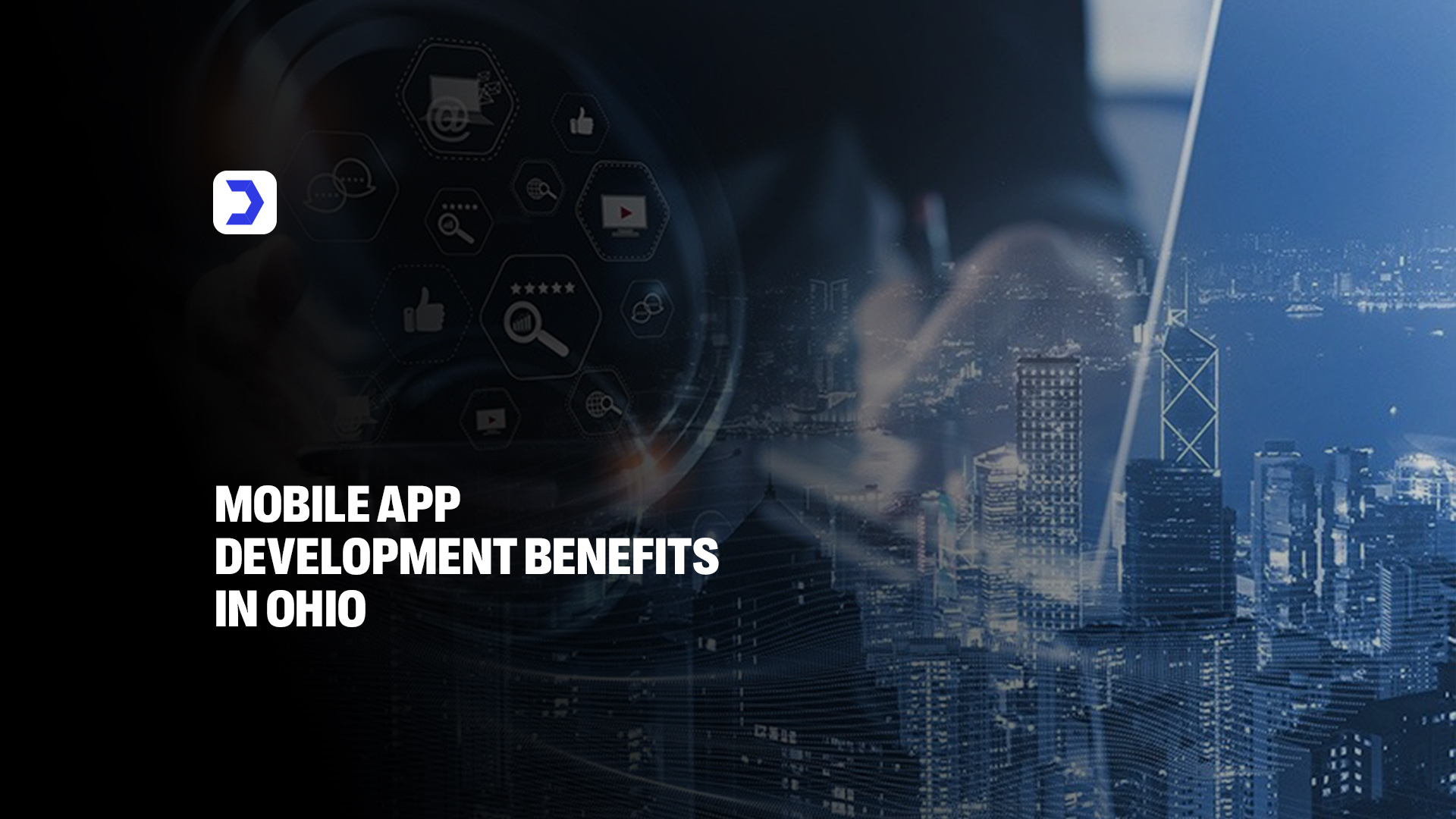In today’s fast-paced world, patients demand better, quicker, and more efficient services from healthcare providers. Hospital app development has become an essential tool for enhancing the patient experience, efficient operations, and improving overall healthcare delivery. By leveraging modern technologies and app development, hospitals can increase accessibility, offer more personalized care, and ensure better communication with their patients. In this blog, I will explore the benefits of hospital mobile app development and the key features that make them indispensable for today’s healthcare system.
Key benefits of hospital app development:

Health Information Generated by Patients
A major benefit of hospital app development is allowing patients to input health information, enabling secure data storage and access. This helps healthcare professionals make informed decisions and provide personalized care by tracking symptoms, medications, and vitals. Top backend development services ensure smooth data management and optimal app performance, creating secure, scalable systems that handle large volumes of health data efficiently while providing a seamless user experience.
Location-based
Location-based services are another standout feature of hospital mobile app development. Patients can easily find the nearest hospital or clinic, get directions, and receive alerts about nearby healthcare facilities. This is particularly important in emergency situations, where time is crucial. Additionally, hospitals can use location tracking to send personalized notifications or reminders to patients about upcoming appointments or services available in their vicinity.
Chatbots for Patient Support
Integrating chatbots for patient support within the hospital app is a game-changer. These AI-driven assistants can provide 24/7 assistance, answer frequently asked questions, help schedule appointments, and guide patients through the hospital’s services. Partnering with a trusted hospital app development company ensures that Mobile app development services include AI tools that enhance patient engagement, making interactions more efficient and cost-effective by reducing human error and waiting times.
Prevention of Disease
A hospital app can also be a powerful tool in the prevention of disease. By sending reminders for vaccinations, health checkups, and preventive screenings, hospitals can encourage patients to stay proactive about their health. Additionally, hospital apps can offer personalized wellness tips and provide educational resources on healthy living.
Telehealth
With the growing popularity of telehealth services, hospital mobile apps have become essential for offering remote consultations. Patients can now consult healthcare professionals via video calls, messaging, or voice calls directly from their mobile devices. This feature makes healthcare more accessible, especially for those in remote areas or with mobility issues, and reduces the need for in-person visits, helping to save time and resources.
Medication Reminders
Medication reminders are an essential feature in most hospital apps. Patients can set up personalized medication schedules and receive alerts to take their medications on time. This feature is crucial for individuals with chronic illnesses who need to adhere to strict medication regimens. Hospital apps that include medication tracking ensure that patients stay on top of their treatment plans and reduce the risk of missed doses.
Easier Access to Medical Reports
One of the most significant advantages of a mobile app development for hospitals is the ability to access medical records anytime and anywhere. Patients can view their test results, lab reports, imaging scans, and medical history directly through the app. This convenient access to medical records helps patients stay informed about their health, reduces the need for unnecessary appointments, and empowers them to make more informed decisions about their care.
Improve Patient Care and Efficiency with a Customized Mobile App.
Enhance patient care, streamline hospital operations, and improve accessibility with a custom hospital mobile app and stay ahead in digital healthcare innovation.
Hospital Mobile App Features

Appointment Scheduling
Appointment scheduling is a core feature of any hospital app development. It allows patients to book appointments online, view available slots, and receive confirmation and reminders. With an app for hospital appointment or hospital appointment app, patients no longer have to wait on the phone to schedule appointments on hospital booking app, improving efficiency and reducing administrative burdens.
Medical Records Access
The ability to access medical records on the go is a crucial component of a hospital management app. This feature allows patients to keep track of their health and medical history while ensuring that healthcare professionals have up-to-date information during consultations. Easy access to medical data enhances the quality of care and minimizes the risk of errors.
Online Consultations
With the rise of telehealth, online consultations have become a standard feature of hospital app development. Patients can consult with doctors or specialists remotely, saving time and avoiding travel. This feature is especially valuable for patients in rural or underserved areas who may not have easy access to healthcare facilities.
Notifications in Real-Time
Real-time notifications keep patients updated on important information, such as appointment reminders, test results, and new health guidelines. Push notifications also provide critical alerts about hospital services, emergencies, and ongoing health campaigns. Real-time notifications play a crucial role in improving patient engagement and communication with healthcare providers.
Billing and Payment
Streamlining the billing and payment process is a key feature of hospital mobile apps. Patients can view and pay bills directly from their phones, reducing wait times and administrative workload. Secure payment options like credit/debit cards and online payment gateways ensure smooth financial transactions. With features like this, hospital mobile app development simplifies payment procedures and enhances the user experience.
Resources for Health and Wellness
A hospital management application can serve as an information hub, offering resources on health, wellness, and disease prevention. Patients can access articles, health tips, diet plans, and exercise routines, empowering them to take charge of their own health. A hospital app development company can help create a user-friendly platform that makes this information easily accessible. By including wellness section in the app, hospitals can encourage healthy habits, leading to a more informed and proactive patient population.
Emergency Services
In case of an emergency, quick access to critical information is vital. Hospital app features like emergency contact numbers, location-based services, and quick links to ambulance services can help patients in urgent situations. By integrating emergency services directly into the app, hospitals can offer more efficient responses and potentially save lives.
Improve Patient Care and Efficiency with a Customized Mobile App.
Enhance patient care, streamline hospital operations, and improve accessibility with a custom hospital mobile app and stay ahead in digital healthcare innovation.
Conclusion
As healthcare evolves, hospital mobile app development is a necessity, improving patient engagement, operational efficiency, and access to services. As a leading healthcare app development company, DSL specializes in app development and backend development services, that can help healthcare institutions achieve these goals. With expertise in hospital app development services, Digital Software Labs ensures better patient care, streamlined operations, and a competitive edge in the ever-changing medical landscape, leveraging innovative technology to enhance healthcare delivery. To support growth, we provide insightful news, blogs, articles, and analytics, ensuring businesses stay up-to-date with industry trends and optimize operational efficiency and customer engagement.
Healthcare applications are vital as they connect patients with providers, offering easy access to services, records, and support. They improve efficiency, reduce costs, and enhance health data management. With features like telehealth, medication reminders, and emergency services, these apps make healthcare more accessible, personalized, and efficient for patients.
The cost to make an app in 2025 can vary based on the complexity and features of the app. On average, developing a hospital mobile app can range from a few thousand to several hundred thousand dollars. Factors like design, functionality, security, and integration with existing systems influence the cost.




